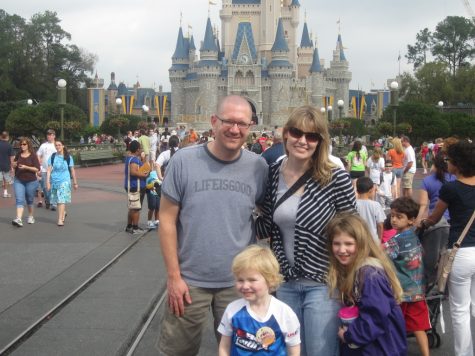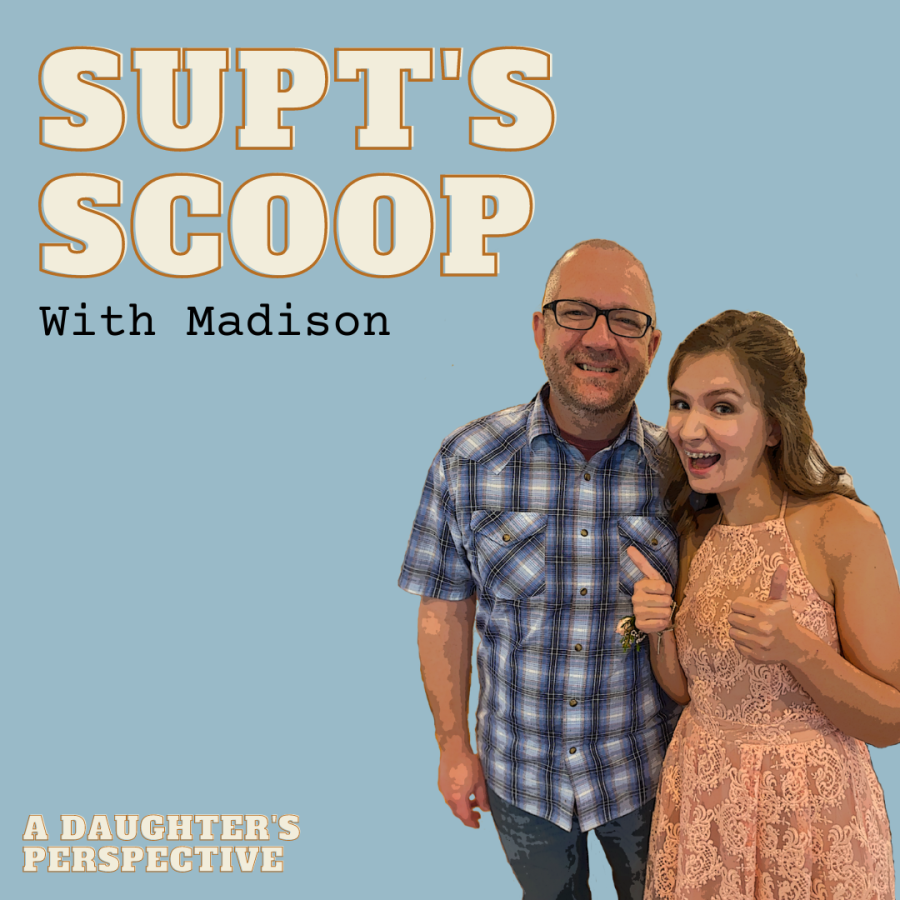Not All Sunshine and Rainbows
When “Supt’s Scoop” went live, I challenged myself to cultivate a space for transparent reflection on my dad’s position. While I’m eternally grateful for my childhood, this exercise in authenticity would fail if the position-related struggles were never acknowledged. As I’ve matured, others’ public portrayals of transparency have encouraged me in mine. Whether through experience or emotion, I hope this article resonates with you, emboldening reflections on your past as means to navigate the present. Our pasts hold more answers than we realize, so let’s jump in together!
Childhood traumas are pivotal, no matter how small they may seem. In first grade, I learned many difficult lessons as “superintendent’s kid.” In class, I sat across from a student, whom we shall call Scott. He was normally quite pleasant. However, during a particular spelling test, we started arguing. While I knew that test conversations were strictly prohibited, our substitute didn’t seem to care. Thus, I continued. Scott made a snarky comment and I shot back with the ever clever, “I’m going to tell my dad you said that. He’s the superintendent.” (Oh to be that candid.) Unfortunately, Scott was quick to retort with, “Actually, my mom’s a lawyer and she can kill your dad.” Wow. That escalated quickly. Like many first graders, I was unable to determine whether or not these comments were factual. Though at that moment, it didn’t matter. It was the first time someone had remotely attacked my dad. My core was rattled. Upon reflection, I realized this was my first encounter with targeted opposition. While Scott probably didn’t realize the magnitude of his implications, it taught me that not everyone will be fans of everyone, including my dad. To fathom Dr. Tucker, my biggest supporter, having opposition was unthinkable to me. And yet, in first grade, I realized it was possible. I’m grateful to have experienced such specific, family targeted animosity at a young age. Scott’s comments prompted me to maturity, laying the emotional framework to process a variety of perspectives, whether involving a global pandemic or social issues. Long story short? Thank you Scott for helping me realize what voices I should surround myself with. Not to mention that lawyers aren’t legally allowed to eliminate others, I’ll definitely remember that.

Continuing with the first-grade theme, more trauma unleashed when the school district’s holiday card was published. We were tasked with painting a Christmas tree in art class, complete with golden tinsel and ornaments galore. The art teacher (whom I absolutely adored) was quick to explain how specific pieces would be judged by the superintendent, with one ultimately becoming the card. Knowing the superintendent’s all-time favorite student was me (for obvious reasons), I thought my selection was in the bag. These suspicions grew greater when the art teacher decided my piece was worthy of nomination. As the time for decision came around, I was so excited. However, I refused to consult my dad about the results to keep up appearances. The time of ranking came and went. I was confused when no one contacted me about the card but initially tried not to read into it. That was, until one day my teacher proclaimed a special announcement was in order. She then proceeded to congratulate my classmate on her card selection. My heart broke. Why wasn’t I chosen? Was the painting not good enough? This was my first lesson in impartiality. I had to grasp the concept of workplace bias fairly quickly, learning that certain situations frown upon partial action, like the holiday card. I realized that choosing my art could have been considered a bias towards me, his daughter. If he chose to act on all situations partially, how would families know if he truly worked for the district’s best interests and not his own? Now, this realization didn’t magically conjure up in first grade. It’s been a long and wearisome journey. I wrestled with not getting chosen for a few years until I struck up the courage to inquire about the decision. It turned out, Dr. Tucker was already one step ahead. Knowing that a partial choice could be criticized, he enlisted the help of his secretary to choose bias-free. (And that’s how it’s done, folks!) Though first grade Madison can finally sigh knowing her dad didn’t decide, present-day Madison can appreciate the growth created by the “fir tree fiasco.” I’m thankful to have realized many moving parts play into situations, making black and white decisions few and far between. Much clarity can be found by looking at situations from multiple perspectives, within one’s professional life and beyond. So step back and take a deep breath! Just like little Madison learned when the holiday card wasn’t credited to her, everything will make sense in time.
That’s all for Supt’s Scoop!
Madison


